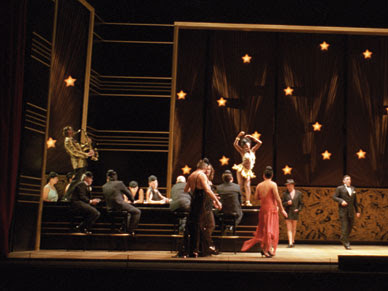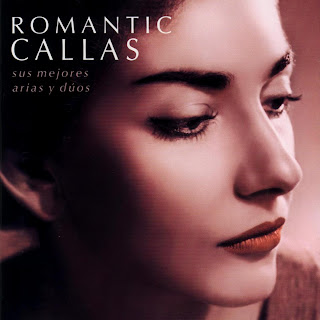Wiener Staatsoper Arabella Review
This review comes a bit after the fact due to my hasty departure to Prague (and on the way to Krakow and Budapest). However, I thought I would review my third opera seen in standing room at the Wiener Staatsoper, Richard Strauss' Arabella. The production was avantgarde in some ways, and relatively standard in others. It was well produced and the singing was, for the most part, very well done. On the evening I saw the production, I found that it got better and better as it went along, after a somewhat lackluster first act. I must apologize that this review will be slightly shorter as I am also trying to blog about my travels throughout Europe; I wanted to write this review while Arabella was still fresh in my mind, but I did not have access to a cast list while travelling. Therefore I will do my best to reconstruct my opinions a week and a half after the fact.
Conductor - Franz Welser-Möst
Director - Sven-Eric Bechtolf
Set Design - Rolf Glittenberg
Costumes - Marianne Glittenberg
Choral Director - Martin Schebesta
Graf Waldner - Lars Woldt
Adelaide - Zoryana Kushpler
Arabella - Anne Schwanewilms
Zdenka - Genia Kühmeier
Mandryka - Tomasz Konieczny
Matteo - Michael Schade
Graf Elemér - Gergely Németi
Graf dominik - Adam Plachetka
Graf Lamoral - Sorin Coliban
Die Fiakermilli - Julia Novikova
Eine Kartenaufschlägerin - Donna Ellen
Wlko - Konrad Huber
Djura - Jacek Krzyskowski
Jankel - Dritan Luca
Ein Zimmerkellner - Gerhad Reiterer
Erster Spieler - Hiro Ijichi
Sweiter Spieler - Oleg Savran
Dritter Spieler - Ion Tibrea
General information & Synopsis: http://en.wikipedia.org/wiki/Arabella
I found the set design very interesting. Though there were a variety of set changes, the motif was always based on black with highlights of yellowish gold. The three most important scenes being the box representing the of the hotel with the large sign out the window where as the opera opens, the bar for the party, and the final scenes near the lobby/stairs of the hotel. At first I was a bit skeptical of this set design but I actually came to really like the way that everything was tied together. It's also important to remember but easy to forget that while Strauss' music sounds so much like that from the Romantic period, a 20th Century hotel is actually the appropriate setting for one of his operas, since his work was in the 20th Century and often set there. Indeed, the costumes seemed fairly standard along these same lines.
I thought that the minor roles were played well. Adelaide was a hopeful mother wanting to do what was best for her children but a bit mixed up about what really was best. Indeed, her voice reflected that, convincing, but not overpowering. The three counts were also well played as the romantic buffoons they are. They added humor and kept things interesting without ever stealing the show. The spoken roles, small as they are, were also played in character and kept the opera moving along.
The tenor of Michael Schade was powerful and robust, but not particularly remarkable. He didn't seen to shine throughout a lot of the opera. His attempts to convince Arabella in the third act, however, were mind blowing. He sang through the long difficult passage with fire, conviction, and love. It was a truly moving moment. In a way, I think perhaps his character is not meant to be remarkable at first, but then becomes more so as time passes, when he's becoming more and more desperate before the denouement and his transference of affection to Zdenka. Zdenka herself, played by Genia Kühmeier, was quite impressive, as well. Her acting was superb, playing the balance quite well between acting a man yet still remaining a woman. Unlike true trouser roles, she let enough of the femininity show through to add to the comedy of the opera. As she came more into the spotlight in the third act of the opera, her voice opened up into a powerful, romantic, and touching tone that while representing her literal unmasking, also demonstrated her assumption to womanhood after her time with Matteo.
Lars Woldt played Graft Waldner quite admirably. Though Graf Waldner is at times a bit of a schmuck, in search of financial reprieve and caught up in marital politics, Woldt's performance gave him poignancy, as well. He convincingly made the transition from the less than admirable actions of Waldner in the beginning of the show to the man who seeks to clear up the quarrel between Matteo and Mandryka, keep both his daughters happy, console his wife, and yet also keep his family and his own affairs intact. The voice that accompanied this was strong and sweet, yet had the appropriate color for a father figure. In a strange twist, his voice had a lighter, more lyric quality to it than Tomasz Konieczny's. This reversal of bass/baritone roles led to a unique and intriguing sound between the two characters.
If Lars Woldt's performance was a well wrought, if light, bass performance, Tomas Konieczny's performance as Mandryka was a stunning, dark baritone tour de force. From the moment he came on stage he was tall, square shouldered, and impressively costumed. From the moment he opened his mouth a rich, virile, and romantic sound carried through the entire hall. He was also able to play two sides of a sometimes tricky coin. While he frequently, passionately expressed his love for Arabella, he also came off as a powerful, sexy man that would easily leave Arabella besotted. This also allowed him to convincingly play the wounded pride of a man spurned in the third act and the jealous rage he expresses at Matteo. Most importantly however, it was his crackling, rich, dark voice that made him and his character the most impressive of the cast.
Anne Schwanewilms as Arabella herself was, for the bulk of the opera, less impressive than I would have hoped. It would be interesting to have the opportunity to hear Renee Fleming, acclaimed as she is, in the same hall in the Spring. When I heard Fleming live I thought her voice was too small for this kind of music, but she nonetheless regularly sings such roles. In this case, I felt like Schwanewilms did have the size, color, and drama in the voice to play Arabella, I just felt like she didn't use it. Of course I respect an opera singer's need to conserve the voice to avoid burn out, or worse, injury, over the course of a long opera. That said, it really felt like she was holding back, which the best performers can avoid even if they are doing so. The voice felt small compared to the orchestra, even if it was still understandably heard over it. The feel was just static, small, and unimpressive. It was not until one long segment at the end of the second act that I felt that she was opening up more. Finally, her third act performance was much improved, with a larger, more lively sound to the voice. I don't know whether this was vocal conservation, her needing to get into it and become more secure, or something else. The only interpretive idea I can use to explain it would be similar to the one that I used for Zdenka - that it is not until Arabella meets Mandryka that her voice truly blossoms with love.
In closing I will add an observation this work brought to me. Some comedy is truly farce, especially in the modern era. The purpose of it is only to elicit laughs and cause a general ruckus of comedy. In more classical forms of comedy, however, poignancy is always available. Opera, with its natural drama through singing form, often seems to be able to lend itself to this. We may find a romantic duet ironic in the context of the particular opera, but that doesn't mean it can't also give us insight into the concept of romance as a whole. I found myself forgetting I was watching a comedy often during the Wiener Staatsoper's Arabella, but nonetheless was laughing at times throughout. Still, I walked away being able to both smile and think deeply.
Conductor - Franz Welser-Möst
Director - Sven-Eric Bechtolf
Set Design - Rolf Glittenberg
Costumes - Marianne Glittenberg
Choral Director - Martin Schebesta
Graf Waldner - Lars Woldt
Adelaide - Zoryana Kushpler
Arabella - Anne Schwanewilms
Zdenka - Genia Kühmeier
Mandryka - Tomasz Konieczny
Matteo - Michael Schade
Graf Elemér - Gergely Németi
Graf dominik - Adam Plachetka
Graf Lamoral - Sorin Coliban
Die Fiakermilli - Julia Novikova
Eine Kartenaufschlägerin - Donna Ellen
Wlko - Konrad Huber
Djura - Jacek Krzyskowski
Jankel - Dritan Luca
Ein Zimmerkellner - Gerhad Reiterer
Erster Spieler - Hiro Ijichi
Sweiter Spieler - Oleg Savran
Dritter Spieler - Ion Tibrea
General information & Synopsis: http://en.wikipedia.org/wiki/Arabella
 |
| The opening scene in the box/hotel room with the large "Metro" hotel sign visible out the window and singers consulting from the bed. |
I thought that the minor roles were played well. Adelaide was a hopeful mother wanting to do what was best for her children but a bit mixed up about what really was best. Indeed, her voice reflected that, convincing, but not overpowering. The three counts were also well played as the romantic buffoons they are. They added humor and kept things interesting without ever stealing the show. The spoken roles, small as they are, were also played in character and kept the opera moving along.
 |
| Michael Schade |
 |
| Genia Kühmeier |
 |
| Lars Woldt |
 |
| Tomasz Konieczny |
 |
| Anne Schwanewilms |
 |
| A general scene from the bar in the second act |






Comments
Post a Comment